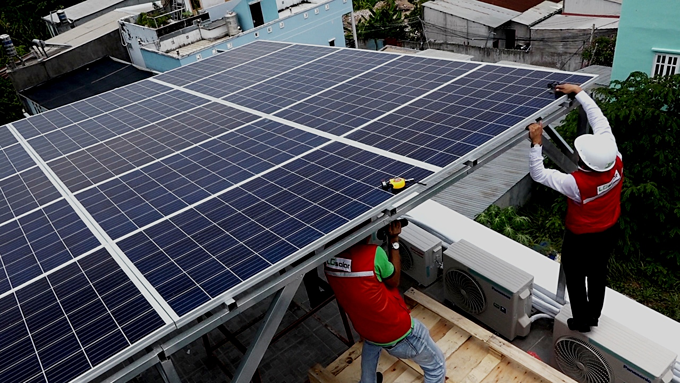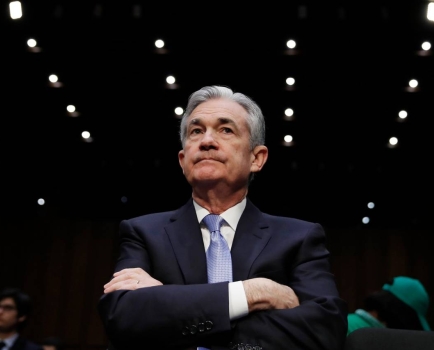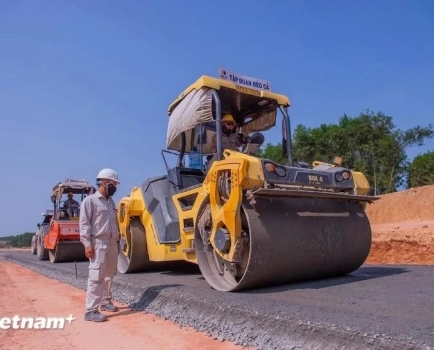Vietnam urged to diversify funding sources for sustainable, green development
Sat, 08 Jun 2019 15:26:00 | Print | Email Share:

Vietnam is struggling to fund sustainable development projects, and the country needs to diversity its funding options, experts say.
Experts at a recent forum on sustainable finance in Hanoi said that many factors prevented climate-smart projects from getting the investment they need.
According to IFC, the private sector funding arm of the World Bank Group, the climate-smart business investment potential in Vietnam is estimated at $753 billion between 2019 and 2030. Of this, $571 billion will likely go towards meeting the country’s low carbon transportation infrastructure needs.
Potential investment in renewable energy totals $59 billion, over half of it ($31 billion) in solar PV systems and another $19 billion for small hydropower projects, while new green buildings represent an almost $80 billion investment opportunity, the IFC estimates.
However actual capital flow into Vietnam’s sustainable growth sector is still very limited. Data from Vietnam’s central bank (SBV) shows that by the first quarter of 2019, total outstanding "green loans" amounted to VND242 trillion ($10.42 billion), just around 3 percent of total outstanding credit of the banking sector, which by February 2019, the latest figure, was VND7.28 quadrillion ($313 billion).
"Compared to the total outstanding loans of the whole banking sector, green loans account for a modest proportion. This is related to difficulties lenders face in terms of efficiency, scale and financial capacity," said Nguyen Quoc Hung, head of the SBV’s department of credit for economic sectors.
He said loans to ordinary projects that have been vetted for environmental and social (E&S) risks were also very low at just VND314 trillion ($13.52 billion).
"Many clients come to us asking for funds for environmentally friendly projects, but the financial efficiency of these projects, including collateral, pose difficulties. Green projects tend to carry high risk, requiring high interest rates, but for smart agriculture, farmers can only afford low interest loans," said Nguyen Thanh Phong, a senior executive of private lender ABBank.
"High interests will squeeze profits, resulting in their efforts ending in failure," he said.
Dominic Scriven, founder and chairman of investment fund Dragon Capital, whose firm has a number of small energy projects in Vietnam, said that national electricity provider Vietnam Electricity's (EVN) policy to purchase energy from households with solar panels had shortcomings.
"As far as I know, these power purchase contracts have a clause saying EVN has the right to terminate the contract without liability for compensation to the electricity seller. Banks are reluctant to lend when investors show them contracts like this," he said.
Scriven urged Vietnam to diversify sources of capital for sustainable growth, not just rely on banks.
"Vietnam is very capable of mobilizing medium and long term capital but there needs to be more effort. You need to be faster, more urgent. For instance, Vietnam can use voluntary pension funds and corporate bonds to invest in renewable energy," he said.
Otherwise, the country would have to look to foreign capital, which comes at a high price and harsher terms, he added.
Vu Chi Dung, deputy director of the international cooperation department at the State Securities Commission (SSC), said that in order to boost sustainable investment in Vietnam, policies of ministries and sectors need to be synchronized, because green projects straddled different sectors.
Vietnam also needs to facilitate domestic private and foreign capital in this sector, improving transparency in the sustainable development sector, he said.
According to an SBV study, 19 credit institutions in Vietnam have implemented strategies to manage social and environmental risks in lending. Of these, 10 have built special credit packages for sustainable development, and 17 are using guidelines in the SBV’s Environmental Risk Assessment Handbook.
By: Vien Thong/VnExpress
---------------------------------------------
Same category News :













